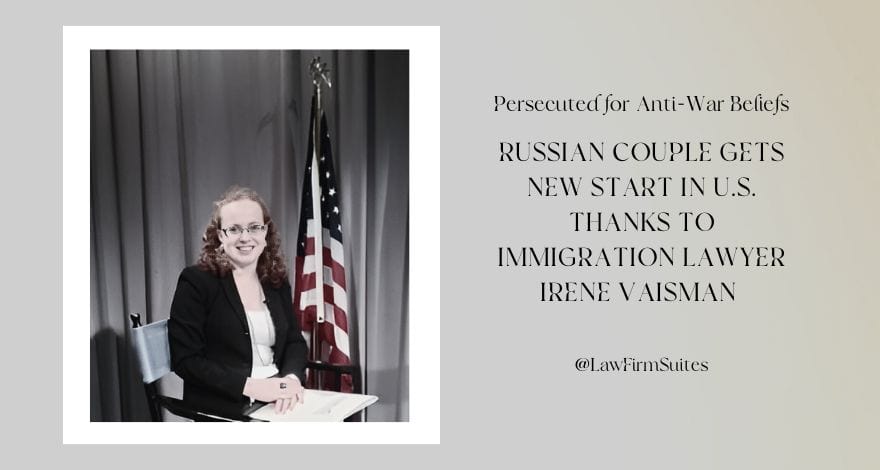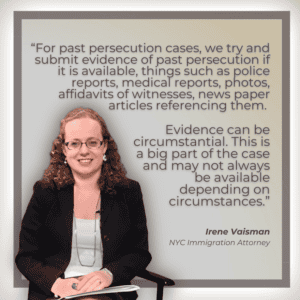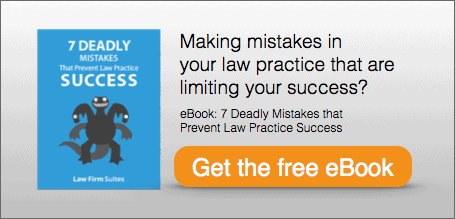New York immigration lawyer Irene Vaisman’s expert legal strategies in winning asylum for a persecuted Russian couple, ensuring their new start in the United States.
This article was part of a series featuring “Big Wins” for some of Law Firm Suites members that included a harrowing tale about the international abduction of kids, a $350 settlement against the U.S. Postal Service for harassment and retaliatory termination, and this story.
Fleeing persecution and seeking safety, a young, educated couple from Russia found themselves in the United States, desperate for asylum. The couple, aged 38 and 32, were Ethnic Kalmyks, which are ethnically Mongolian people residing in southwestern Russia. The couple faced severe threats in their homeland due to their outspoken political views and ethnic background.
Their journey to secure asylum was fraught with challenges, but thanks to the meticulous legal strategy of New York City-based immigration lawyer, Irene Vaisman, the couple was able to start a new life in the U.S.
Initially, the couple ran a blog that focused on Kalmyk language, history, and culture. But after the war in Ukraine began, they started documenting the atrocities and impacts on the Kalmyk community. Their advocacy and political stance led to horrendous persecution in Russia, and they feared future persecution if they were to return.
Ethnic Cleansing Concerns and the Plight of Russian Asians
This case may not be an isolated incident but rather part of a larger, troubling pattern that has drawn international attention. Dr. Samuel Ramani, an Oxford-based researcher and author, has suggested that the ongoing mobilization in Russia might even “constitute ethnic cleansing.”
This concern is particularly acute in impoverished communities of Russian Asians and other ethnic minorities, where the draft appears to be disproportionately harsh. According to Aldar Erendjenov, a representative of the Free Kalmykia Foundation—an activist group aiding Kalmyks fleeing Russia—there is a noticeable disparity in the number of men conscripted from ethnic minority regions compared to Slavic regions.
Erendjenov stated, “We see the disproportionality with a naked eye… from our [ethnic minority] regions we had three, four times more men taken [than from Slavic regions].” He noted that some villages in Kalmykia had been depopulated by roughly 20 percent since the mobilization began.
The disproportionate conscription and targeted persecution of Asian ethnic minorities underscore the severity of the couple’s situation and highlight the broader context of ethnic discrimination and potential ethnic cleansing in Russia.
The Couple’s Arrival in the U.S.
The couple entered the U.S. through the Southern Border and were paroled through the CBP-1 program when they asked for asylum. The couple connected with Vaisman’s firm through a personal reference from other clients.
 Building a Strong Application and Evidence Package
Building a Strong Application and Evidence Package
“We submitted a very thorough application and supporting documents package, which included substantial evidence,” said Vaisman.
A robust asylum application requires a detailed account of the applicant’s story, including past persecution and fears of future persecution. For this case, Vaisman provided evidence such as police reports, medical reports, photos, witness affidavits, and newspaper articles referencing the couple. “Evidence can be circumstantial. This is a big part of the case and may not always be available depending on circumstances,” Vaisman said.
Country conditions reports are another critical element. These reports provide context and support for the claims made by the applicants, showing that the persecution they described is a reality in their home country. “This part always takes a long time if thoroughly done. I try to do this for each and every aspect of the claim,” Vaisman explained. It involves thorough research and meticulous documentation, which is time-consuming but essential for a successful application.
Ages and Education: Do They Matter in Asylum Cases?
Legally, the ages of adult asylum applicants do not directly impact the case. However, educational background can influence discretion. “So if I have people who have diplomas or certificates, I personally always include them,” Vaisman explained.
While education itself does not provide grounds for asylum, it can play a role in the discretion factor during the case evaluation. Including diplomas and certificates can sometimes help in painting a comprehensive picture of the applicants. Employment and educational background can sometimes relate to the persecution experienced, making each case highly fact-driven.
Vaisman Meticulously Addressed DHS Concerns
The DHS attorney had concerns about the male applicant’s military commission. Although he was commissioned after his university studies, he never served. “My response – even though he was commissioned, he never served as he obtained that commission after his studies at the university and in fact never served,” Vaisman clarified.
Another concern was the fear of conscription to fight in the war in Ukraine, which he opposed. While conscription alone is not a ground for asylum, Vaisman highlighted exceptions and precedent cases, ultimately convincing the DHS attorney to agree with their position. “I pointed out exceptions to that precedent and gave him a few cases that he never heard of and he agreed with me,” she added.
After addressing their concerns in detail, DHS agreed with the couple’s position, significantly reducing the testimony and trial time. “The immigration judge recognized that this case and these people ‘overwhelmingly qualify’ for asylum and granted their application,” Vaisman added.
Life After Asylum
Since obtaining asylum, the couple has been doing well. The husband works as an assistant vice president at a large financial institution, and the wife is studying English while looking for a job. “I have recently submitted their green card applications,” Vaisman said, marking the next step in their journey to stability and security in the United States.
This case underscores the importance of thorough preparation, comprehensive evidence, and strategic legal arguments in asylum cases. The successful outcome is a testament to the hard work and dedication of Irene Vaisman and her team, and the resilience of their clients.
About Irene Vaisman and The Vaisman, P.C.
The Vaisman P.C. is a law firm dedicated exclusively to the practice of immigration law. Its managing attorney, Irene Vaisman, believes in high quality, honest and personable representation that is also affordable. The Vaisman P.C. strives to help immigrants and their families during often very tough times.
Ms. Vaisman assists individuals in all aspects of immigration law, but devotes most of her time to deportation and removal cases and unlawful presence and fraud waivers (I-601 and I-601A) and those who seek marriage-based green card applications. Ms. Vaisman has conducted many immigration proceedings before the Immigration Court, the Board of Immigration Appeals, Department of Homeland Security and United States Citizenship and Immigration Services helping individuals to file their waiver applications, adjustment petitions, naturalization applications or various motions or appeals and many other types of complex immigration matters.
Irene Vaisman is committed to keeping families together when facing removal or deportation and reuniting families after the need for a waiver. Helping clients realize their American Dream is her firm’s goal.
Irene Vaisman is a valued member of the Law Firm Suites community in our NYC Financial District location, where The Vaisman, P.C.’s law office is located.
How to Get in Touch with Irene Vaisman
Irene Vaisman, Esq.
The Vaisman P.C.
Tel: (646) 253-0516
[email protected]
vaismanpc.com
Connect on LinkedIn
Connect on Avvo



